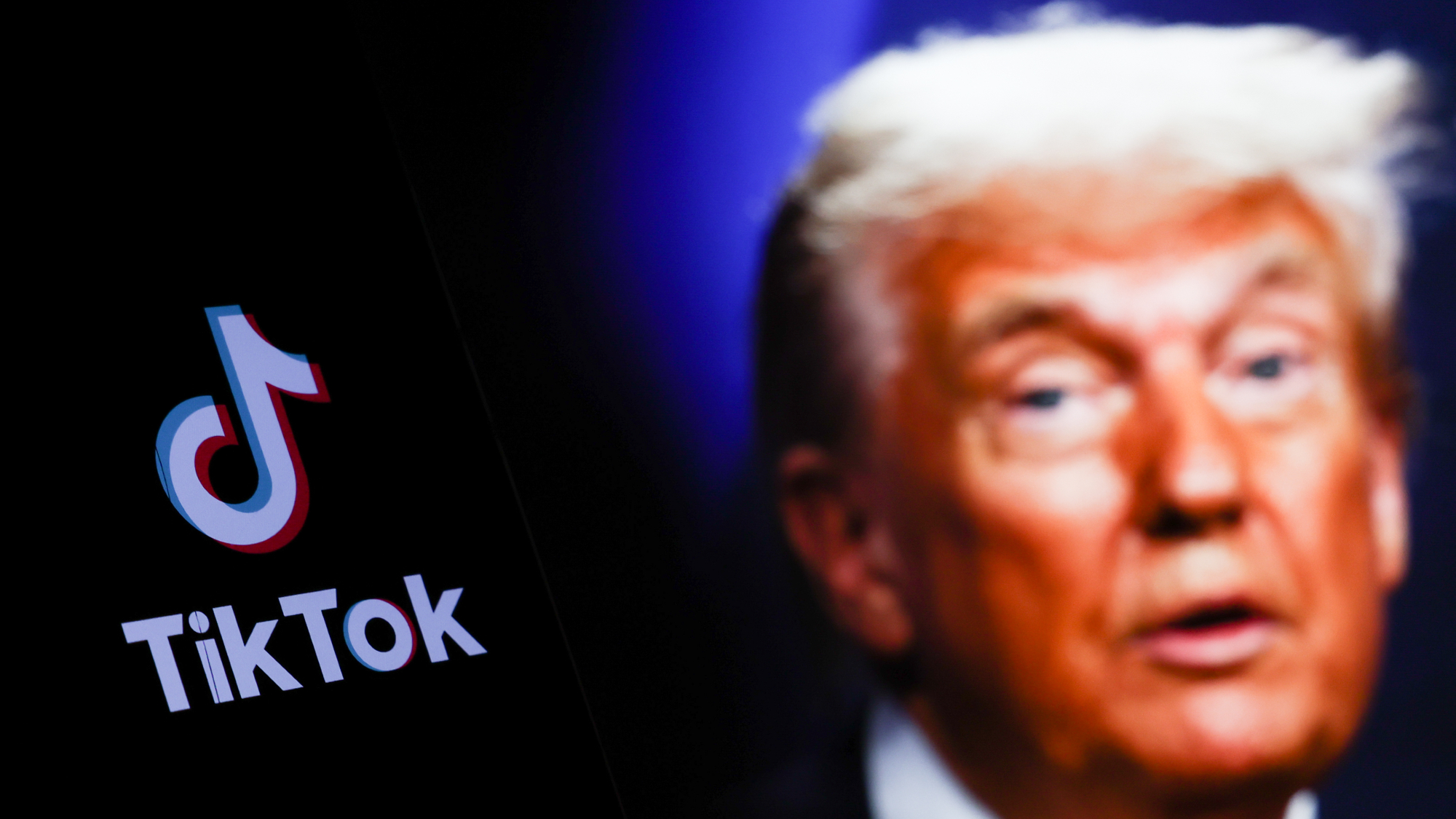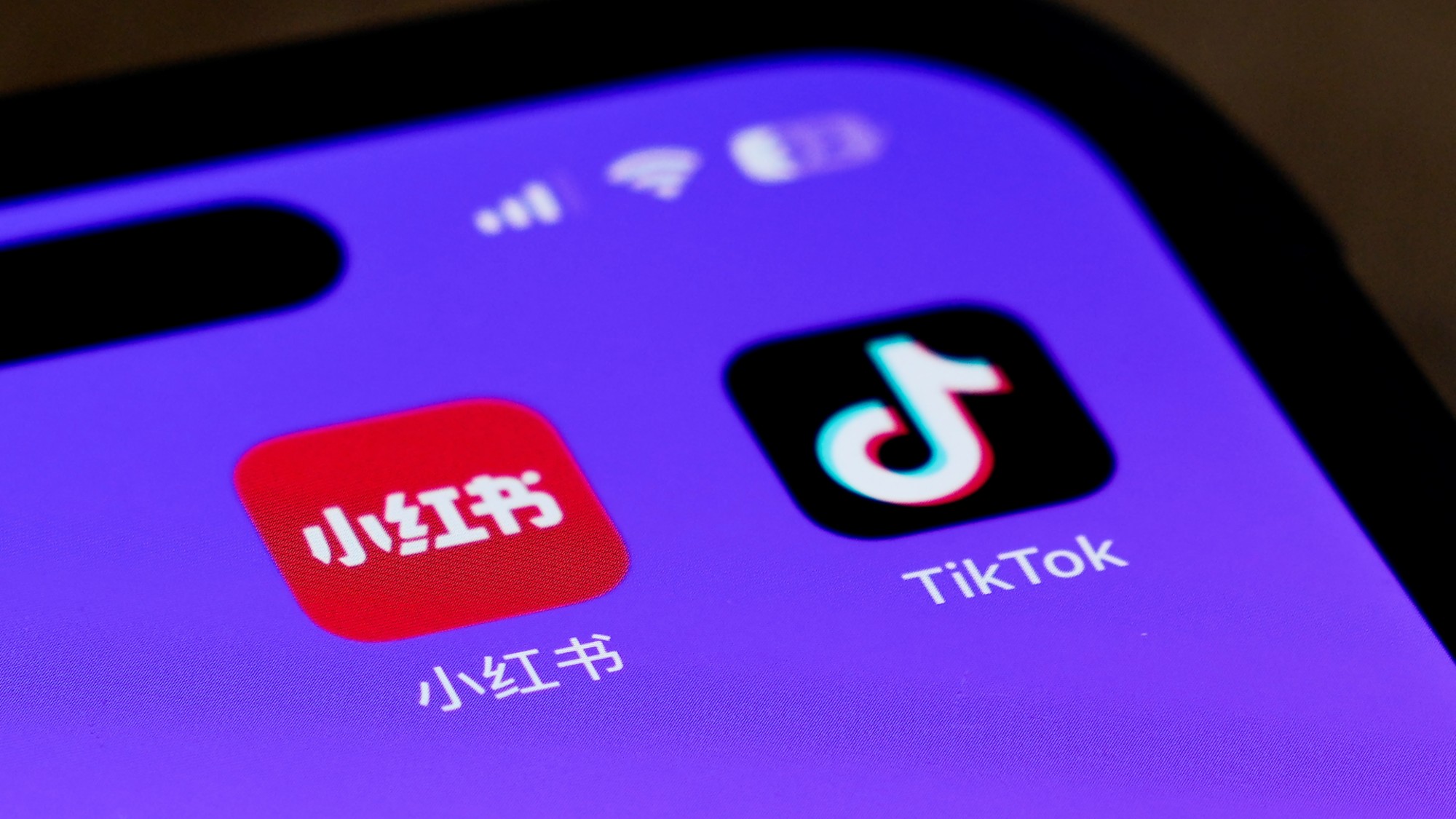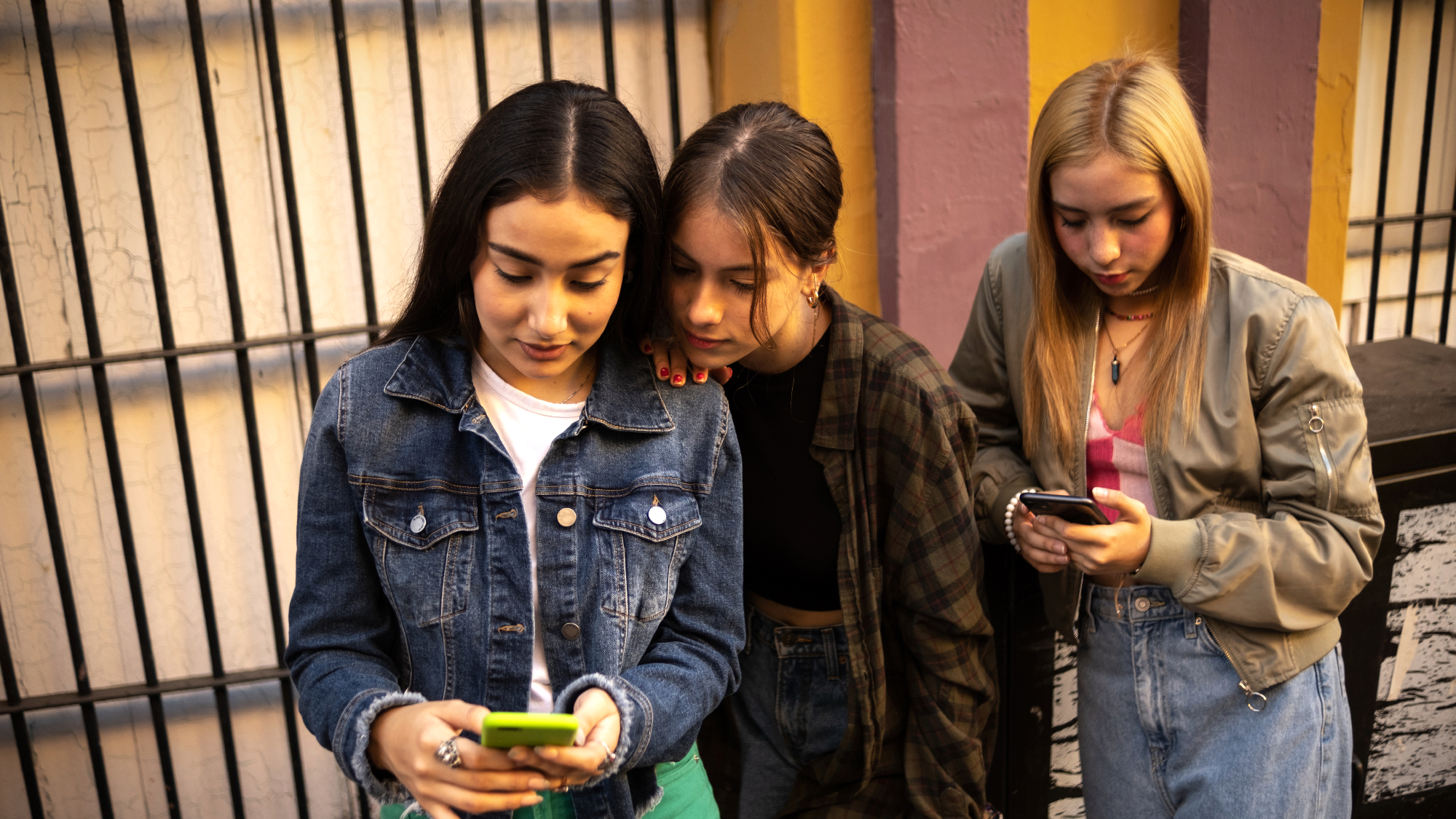NPC streamers are having a moment
A look behind the viral TikTok trend that has the internet saying, "Mmm, ice cream so good"


A free daily email with the biggest news stories of the day – and the best features from TheWeek.com
You are now subscribed
Your newsletter sign-up was successful
If you've been on social media recently, chances are you've run across the phrase "mmm, ice cream so good" after TikTok creator PinkyDoll's bizarre NPC live streams reached viral fever pitch. Her strangely robotic movements and repetitive sounds have boosted her to meme status, and PinkyDoll is cashing in on the attention. Her content nets her thousands of dollars weekly, leaving many baffled over what makes the niche NPC video streams so popular.
What is NPC streaming?
In video game parlance, NPCs, or nonplayable characters, are side characters a player cannot control. They are preprogrammed, usually with looping scripted dialogue and robotic movements. NPC streamers mimic these background characters with canned replies and repetitive actions in response to gift tokens on TikTok live streams. They stay in character for hours as viewers control their responses by tipping with digital tokens, each image translating into a catchphrase or cartoonish action. Know Your Meme traces the trend to early 2022 and Japanese TikTok personality @natuecoco, who currently has 1.5 million followers.
During her shows, PinkyDoll, whose real name is Fedha Sinon, pops popcorn kernels with a flat iron and rapidly utters slang phrases like "gang gang" as tokens roll in. Her NPC streams have become a lucrative genre because the tokens have real-life monetary value. Sinon told The New York Times that she makes between $2,000 and $3,000 per stream, with tens of thousands watching her shows. She has about 800,000 followers on TikTok, where she has quickly become the face of the viral trend.
The Week
Escape your echo chamber. Get the facts behind the news, plus analysis from multiple perspectives.

Sign up for The Week's Free Newsletters
From our morning news briefing to a weekly Good News Newsletter, get the best of The Week delivered directly to your inbox.
From our morning news briefing to a weekly Good News Newsletter, get the best of The Week delivered directly to your inbox.
Why are viewers drawn to it?
Some culture researchers and streamers see the trend as "another example of the convergence between erotic work and gaming in online culture," The Guardian wrote. NPC streamers are part of a legacy of "self-sexualized creators who built their followings by combining the aesthetics of gamer culture with cam girl influencing," Christine Tran, a University of Toronto doctoral researcher of internet culture and digital labor, told the outlet. The streams offer fans a "sense of being able to control a creator, and we see control become a byword for feeling intimate," she added.
Tran also believes the streams might be a covert way for adult performers to find an audience. Even if the streams are not overtly sexual, the sense of control makes it a subtle type of fetish content. After the 2018 FOSTA-SESTA laws led to the shutdown of many websites catering to sex work, NSFW ("not safe for work") creators have had to find more discrete ways to advertise. "By repackaging intimacy through the filter of gamer language — something we associate with youth — there is plausible deniability for these creators who are ostensibly partaking in a form of erotic work," Tran said.
Other people think that assumption is a reach and harmful. Accusing a woman that "monetizes the absurd" of making fetish content is a "symptom of the anti-sex moral panic sweeping pop culture," Morgan Sung opined in TechCrunch. "Sex workers, meanwhile, are unfairly dragged into dehumanizing conversations about the genre." The viral boost of the trend has "opened the door for bad faith discourse around online sex work, even though these TikTok creators aren't making this content for sexual gratification."
A free daily email with the biggest news stories of the day – and the best features from TheWeek.com
Theara Coleman has worked as a staff writer at The Week since September 2022. She frequently writes about technology, education, literature and general news. She was previously a contributing writer and assistant editor at Honeysuckle Magazine, where she covered racial politics and cannabis industry news.
-
 How the FCC’s ‘equal time’ rule works
How the FCC’s ‘equal time’ rule worksIn the Spotlight The law is at the heart of the Colbert-CBS conflict
-
 What is the endgame in the DHS shutdown?
What is the endgame in the DHS shutdown?Today’s Big Question Democrats want to rein in ICE’s immigration crackdown
-
 ‘Poor time management isn’t just an inconvenience’
‘Poor time management isn’t just an inconvenience’Instant Opinion Opinion, comment and editorials of the day
-
 TikTok finalizes deal creating US version
TikTok finalizes deal creating US versionSpeed Read The deal comes after tense back-and-forth negotiations
-
 Is social media over?
Is social media over?Today’s Big Question We may look back on 2025 as the moment social media jumped the shark
-
 Sora 2 and the fear of an AI video future
Sora 2 and the fear of an AI video futureIn the Spotlight Cutting-edge video-creation app shares ‘hyperrealistic’ AI content for free
-
 Trump allies reportedly poised to buy TikTok
Trump allies reportedly poised to buy TikTokSpeed Read Under the deal, U.S. companies would own about 80% of the company
-
 TikTok's fate uncertain as weekend deadline looms
TikTok's fate uncertain as weekend deadline loomsSpeed Read The popular app is set to be banned in the U.S. starting Sunday
-
 TikTok alternatives surge in popularity as app ban looms
TikTok alternatives surge in popularity as app ban loomsThe Explainer TikTok might be prohibited from app stores in the United States
-
 States sue TikTok over children's mental health
States sue TikTok over children's mental healthSpeed Read The lawsuit was filed by 13 states and Washington, D.C.
-
 What happens if TikTok is banned?
What happens if TikTok is banned?Today's Big Question Many are fearful that TikTok's demise could decimate the content creator community
